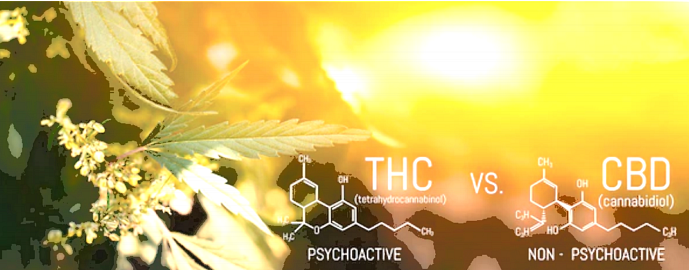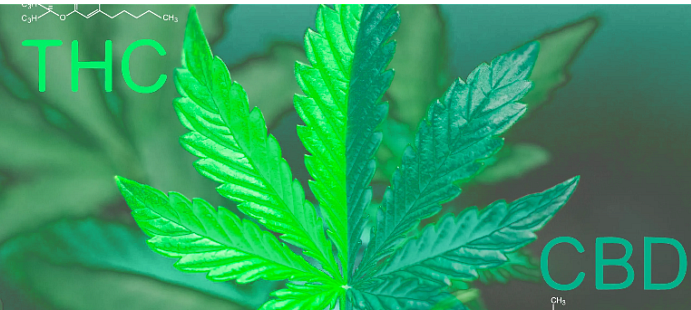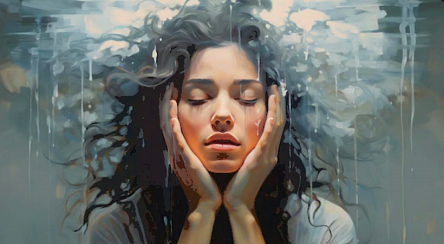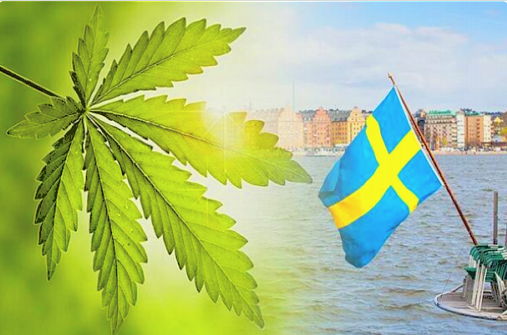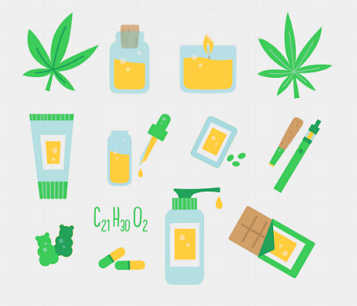CBD vs THC: Explaining the Difference
Cannabidiol (CBD) and delta-9-tetrahydrocannabinol (THC) both come from cannabis plants, but they have very different effects on your brain and body.
Though there are more than 120 cannabinoids in the Cannabis sativa or Cannabis indica plants, the main players are THC and CBD. But certainly, far from the only beneficial cannabinoids, we are understanding and isolating more every day.
Despite their similarities, CBD and THC are quite different in their effects. As a result, it’s important to understand the distinctions so you can utilize that knowledge to enjoy the benefits.
Both CBD and THC are natural compounds found in the cannabis plant and both work with your endocannabinoid system to produce effects in the body and mind. The main difference between THC and CBD lies in the way these compounds bind to your body’s CB1 and CB2 cannabinoid receptors to cause an effect.
CHILDREN OF THE SAME MOTHER
The demand for CBD is expounding exponentially as it seems daily there are more uses, more means of delivery, and more benefits being uncovered. However, the pace of discovery, the groundswell of support, and the spread of understanding has been non-uniform and thus has led to confusion and complexity. It’s therefore time to take a closer look to see why CBD is literally on everybody’s lips, and why cannabidiol (CBD) has nothing in common with the controversial reputation of the cannabis plant. They might be children from the same mother, but like all siblings, they act in their own very different and unique way.
CBD – The Empathetic Child
Although CBD and THC have a similar chemical formula, their atoms are arranged differently. The effect? Unlike THC, CBD does not cause a psychotropic effect. There’s no big high feeling. No laughing fits. But also: no red eyes and no worries. That’s the most obvious difference between CBD and THC: it won’t make you high, however it is psychoactive. THC and CBD are both mood-altering substances, however CBD is mood altering in the same way a cup of coffee is mood-altering, it may give you an extra pep in your step, but it certainly won’t make you stoned.
The CBD found in CBD oils is derived directly from the hemp plant, which is related to the medicinal cannabis plants which contain higher levels of tetrahydrocannabinol (THC), but it’s not exactly the same plant. Hemp-derived CBD contains negligible amounts of THC, but not enough to product any psychotropic effects. This variety of high-CBD-low-THC producing cannabis is known as Industrial hemp. The high THC and low CBD variety of cannabis is sometimes referred to as “marijuana” but marijuana is simply a slang term.
As an empathetic child CBD can alter mood without intoxication, without addiction, without cognitive effects; and yet it can assist and support sleep, anxiety, appetite, pain and a plethora of other psycho-somatic linked symptoms. As we all search for non- pharmacological and alternative means of handling our own unique emotional and chemical make-up CBD offers a palette of options and opportunities.
THC – The ‘Wild’ Child
THC stands for Tetrahydrocannabinol, it is also a cannabinoid found in cannabis plants. THC is the compound that’s responsible for causing the marijuana ‘high’. Although they are almost identical atomically, the slight re-arrangement provides THC the ability to bind with your C1 receptors, thus producing an intoxicating effect. THC has been proven to provide many medicinal benefits but as the psychoactive affects are considered disruptive to working and safety conditions, many nations have labelled it a controlled substance that must be regulated.
In a 1998 study by Professors Raphael Mechoulam and Shimon Ben-Shabat, it was discovered that cannabinoid activity is increased when there is a broad spectrum of cannabinoid present at one time.
This effect is called the ‘entourage effect‘ which sees cannabinoids work in synergy with each other to enhance their effects. Full-spectrum and broad-spectrum formulas contain more than just CBD and are thought to be more effective than when CBD is used by itself. For this reason there are often trace amounts of THC in full spectrum CBD products as the EU has legislated as of 2023 that <0.03% THC is allowed in non-controllable products.
ONE MOTHER - DIFFERENT CHILDREN
